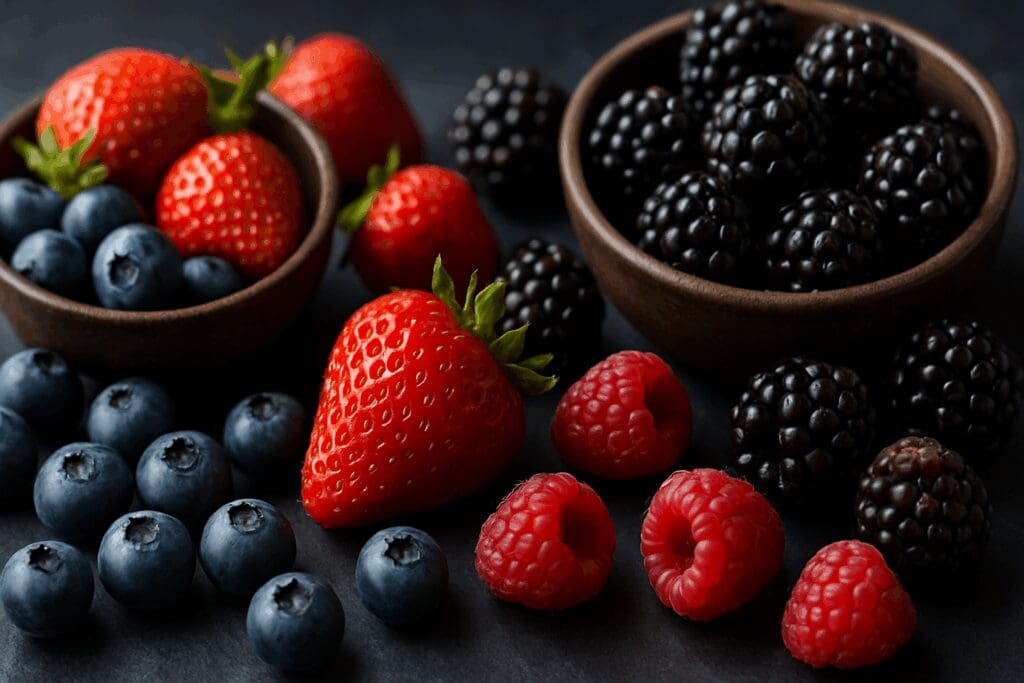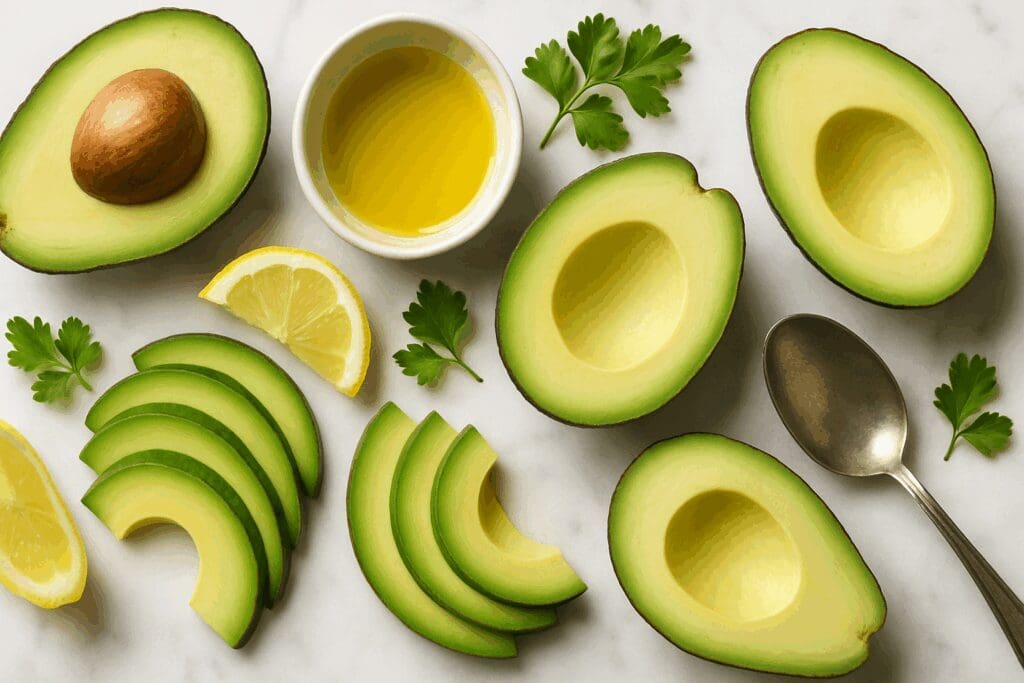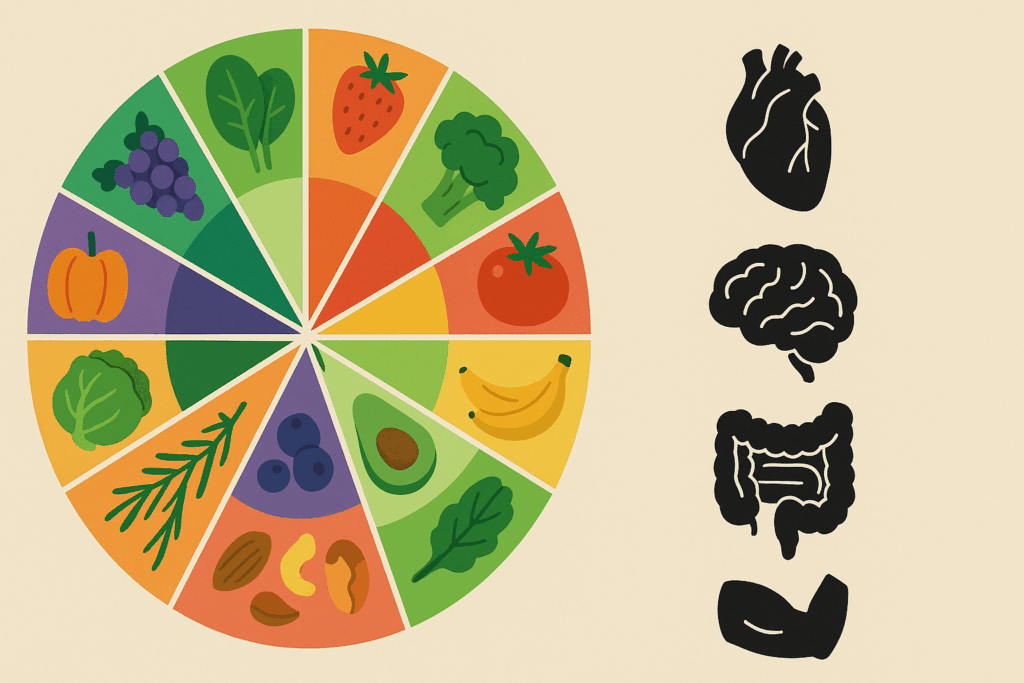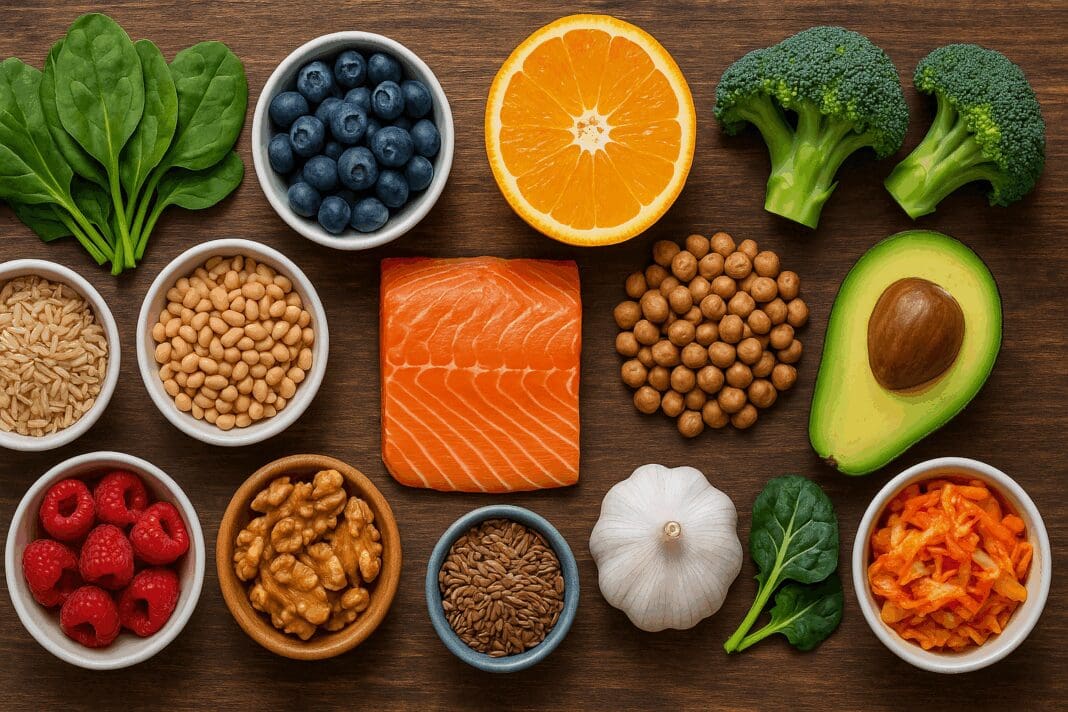Unlocking the Power of Everyday Nutrition
Nutrition plays a pivotal role in the quality of our lives, influencing not only our physical health but also our mental clarity, mood stability, and overall longevity. As science continues to uncover the intricate connections between food and well-being, it becomes increasingly clear that consistent, mindful eating can profoundly enhance our vitality. At the core of this understanding lies a fundamental truth: there are certain foods that, when consumed daily, deliver remarkable health benefits across multiple systems of the body. This article explores the 12 foods you should eat everyday for powerful nutritional benefits, drawing on evidence-based research and the latest insights in dietary science. These nutrient rich foods are not exotic or difficult to find—they are everyday heroes capable of reshaping your health from the inside out.
You may also like: The Essential Guide to Mediterranean Fruits and Their Powerful Role in a Heart-Healthy Diet
Why Prioritize Nutrient Rich Foods Daily?
Making nutrient rich foods a staple of your daily diet ensures that your body receives essential vitamins, minerals, and phytochemicals that support optimal function. Unlike empty calories from ultra-processed items, nutrient-dense foods provide a high concentration of beneficial nutrients relative to their calorie content. This means you can enjoy satisfying meals that fuel your energy, stabilize your metabolism, and protect your cells from oxidative damage—all while reducing the risk of chronic illnesses such as heart disease, diabetes, and certain cancers. Regularly eating these foods helps stabilize blood sugar, enhance immune response, and maintain healthy body weight without deprivation or complicated restrictions. It’s a sustainable approach to nutrition that leverages the inherent intelligence of whole foods to nourish every aspect of your physiology.

Leafy Greens: The Foundational Superfood
Dark leafy greens such as kale, spinach, collard greens, and Swiss chard are among the most powerful foods you can consume daily. Rich in vitamins A, C, and K, as well as folate and iron, they support cellular repair, immune defense, and red blood cell production. Their high fiber content aids in digestion and contributes to a feeling of fullness, helping to manage appetite and weight. Perhaps most compelling is their dense concentration of phytochemicals like lutein and zeaxanthin, which protect against macular degeneration and preserve vision as you age. Leafy greens also promote cardiovascular health by reducing inflammation and lowering blood pressure through their high nitrate content. Whether incorporated into smoothies, salads, or sautéed dishes, they are versatile and indispensable in any nutrient-focused diet.

Berries: Antioxidant Powerhouses in a Small Package
Blueberries, strawberries, raspberries, and blackberries are celebrated for their intense antioxidant profile. Rich in anthocyanins, vitamin C, and fiber, berries combat oxidative stress, slow cellular aging, and bolster cognitive performance. Daily consumption of berries has been linked to improved memory and reduced rates of cognitive decline, especially in older adults. Their low glycemic index makes them ideal for blood sugar control, even for individuals managing insulin resistance or type 2 diabetes. In addition to their protective role against neurological degeneration, berries support gut health through their prebiotic fibers that feed beneficial bacteria. The inclusion of these vibrant fruits in your daily routine not only brightens your plate but also fortifies your body against chronic inflammation and disease.

Cruciferous Vegetables: Detoxification and Hormonal Balance
Broccoli, cauliflower, Brussels sprouts, and cabbage belong to the cruciferous family, known for their potent detoxifying and anti-carcinogenic properties. These vegetables are abundant in glucosinolates, sulfur-containing compounds that support liver detoxification and hormonal balance. For individuals dealing with estrogen dominance or hormonal fluctuations, regular intake of cruciferous vegetables can promote estrogen metabolism and reduce the risk of hormone-sensitive cancers. They are also high in fiber and vitamin C, contributing to a healthy immune response and better digestion. Light steaming preserves their nutritional integrity while enhancing digestibility, making them a powerful daily choice for those looking to cleanse and strengthen their systems naturally.

Avocados: Heart-Healthy Fats and Satiety
Avocados stand out as one of the most nutrient rich foods due to their exceptional content of monounsaturated fats, fiber, potassium, and vitamin E. These heart-healthy fats help reduce LDL cholesterol levels while supporting HDL cholesterol, contributing to cardiovascular resilience. Avocados also enhance the absorption of fat-soluble vitamins from other foods, such as vitamins A, D, E, and K. Their creamy texture and subtle flavor make them a perfect addition to salads, smoothies, and even baked goods. Despite their calorie density, avocados promote satiety, helping prevent overeating and supporting weight management. Their anti-inflammatory effects also support skin health, cognitive function, and metabolic balance, making them a daily staple worth prioritizing.
Nuts and Seeds: Dense Nutrition in a Tiny Form
Almonds, walnuts, chia seeds, flaxseeds, and pumpkin seeds are compact nutritional powerhouses loaded with healthy fats, protein, fiber, and key micronutrients. They offer a unique combination of omega-3 fatty acids, magnesium, zinc, and antioxidants that support brain health, hormone production, and immune defense. Regular consumption of nuts and seeds is associated with lower risks of cardiovascular disease, type 2 diabetes, and obesity. Their crunchy texture and versatile use in both savory and sweet dishes make them easy to integrate into meals and snacks throughout the day. As one of the top 12 foods you should eat everyday, their inclusion ensures a steady supply of energy and essential building blocks for cellular health and recovery.
Whole Grains: Sustained Energy and Gut Support
Quinoa, brown rice, oats, bulgur, and barley offer a complex carbohydrate profile that provides sustained energy while minimizing insulin spikes. Whole grains are rich in B vitamins, iron, magnesium, and dietary fiber, which collectively support metabolism, red blood cell function, and digestive health. Unlike refined grains that are stripped of nutrients, whole grains retain their bran and germ, preserving valuable phytonutrients and antioxidant compounds. Their role in maintaining satiety and promoting healthy bowel movements cannot be overstated. Moreover, the beta-glucans in oats, for example, have been shown to reduce cholesterol levels and support cardiovascular health. Incorporating a variety of whole grains into your diet ensures metabolic steadiness and gut flora diversity.
Legumes: Affordable Protein and Longevity Food
Beans, lentils, chickpeas, and peas are rich sources of plant-based protein, fiber, iron, and folate. Their low cost and long shelf life make them a practical and sustainable choice for daily consumption. Research has linked higher legume intake with greater longevity and lower rates of chronic disease. Their high fiber content supports blood sugar stability, making them particularly beneficial for individuals with insulin resistance or metabolic syndrome. Legumes also promote satiety and reduce the risk of overeating, contributing to a healthier weight. Their role in maintaining muscle mass while supporting heart health, digestive regularity, and anti-inflammatory balance underscores their value as one of the nutrient rich foods you should eat every day.

Fermented Foods: Digestive and Immune Resilience
Yogurt, kefir, sauerkraut, kimchi, and miso introduce beneficial probiotics into the gut, supporting a robust microbiome that influences immunity, mood, and digestion. Fermented foods help restore gut flora after antibiotic use and enhance the bioavailability of certain nutrients, such as B vitamins and vitamin K2. Regular consumption of fermented products has been linked to reduced inflammation, better mental health outcomes, and fewer gastrointestinal disturbances such as bloating and constipation. Beyond digestion, the gut microbiome communicates with nearly every system in the body, including the brain, via the gut-brain axis. Supporting this communication through probiotic-rich foods each day lays a foundation for whole-body wellness that is both preventative and therapeutic.
Citrus Fruits: Vitamin C and Collagen Support
Oranges, grapefruits, lemons, and limes are refreshing, hydrating fruits that provide an excellent source of vitamin C, a crucial antioxidant for immune support, skin elasticity, and wound healing. In addition to their role in collagen synthesis, citrus fruits contain flavonoids such as hesperidin and quercetin, which exhibit anti-inflammatory and anti-carcinogenic properties. Their high water content supports hydration, while their natural sweetness satisfies sugar cravings in a healthier way. Regular intake of citrus has been associated with lower risk of stroke, especially in women, and improved vascular health due to the vasoprotective effects of their phytonutrients. Integrating citrus into your morning routine or as a midday snack helps fortify the body against seasonal illnesses and oxidative damage.
Garlic and Onions: Functional Foods with Healing Potential
Both garlic and onions are considered functional foods due to their high content of organosulfur compounds, particularly allicin, which have been shown to exhibit antimicrobial, antiviral, and anti-inflammatory properties. Regular intake of these pungent vegetables supports cardiovascular health by lowering blood pressure and improving cholesterol profiles. They also enhance immune defense mechanisms, reduce the risk of certain cancers, and act as prebiotics to nourish beneficial gut bacteria. Cooking garlic and onions slowly preserves their therapeutic compounds while bringing out their natural sweetness. Used as the base for countless culinary traditions, their daily inclusion not only elevates flavor but also fortifies the body from within.
Fatty Fish: Omega-3s and Cognitive Vitality
Salmon, sardines, mackerel, and anchovies are rich in long-chain omega-3 fatty acids EPA and DHA, which play a critical role in brain development, cardiovascular protection, and anti-inflammatory signaling. These fatty acids have been shown to reduce triglyceride levels, improve mood regulation, and support cognitive resilience, particularly in aging populations. Fatty fish also provide high-quality protein and essential nutrients such as selenium and vitamin D. For those with limited access to fresh fish, high-quality canned options or sustainably sourced fish oil supplements offer practical alternatives. Including fatty fish in your weekly rotation, or opting for daily servings in smaller portions, ensures a steady intake of these vital fats for both mind and body.

The Long-Term Benefits of the 12 Foods You Should Eat Every Day
The true power of consistently eating the 12 foods you should eat everyday lies not just in the sum of their individual nutrients but in the synergy they create when consumed together. A diet built on whole, nutrient-dense foods influences everything from immune resilience to hormone regulation and cellular regeneration. When the body receives optimal nourishment on a consistent basis, energy becomes more stable, mental clarity improves, and inflammation is kept at bay. Many of these foods also play a preventative role, helping to delay the onset of age-related diseases and improving quality of life as the years go on. Embracing these foundational foods isn’t about perfection but about establishing habits that align with your health goals and make nourishment intuitive rather than restrictive.
Embracing Nutrient Rich Foods as a Daily Lifestyle Practice
Adopting a daily commitment to nutrient rich foods doesn’t have to be overwhelming or time-consuming. In fact, many of these ingredients are accessible, budget-friendly, and easy to prepare. The key is to create a rhythm that fits into your lifestyle, whether that means prepping meals in advance, rotating seasonal produce, or finding simple ways to combine several of these foods into one dish. Smoothies, soups, grain bowls, and stir-fries offer flexible platforms to incorporate multiple nutrient-dense elements effortlessly. Making these foods a habitual part of your diet helps retrain your palate to appreciate natural flavors, reducing reliance on overly processed or artificially flavored foods.
Frequently Asked Questions: Maximizing Benefits from the 12 Foods You Should Eat Every Day
What is the best way to rotate the 12 foods you should eat everyday without getting bored?
Incorporating the 12 foods you should eat everyday doesn’t have to lead to repetitive meals. One effective strategy is to embrace global cuisines. For example, use cruciferous vegetables in a Thai stir-fry, berries in a Scandinavian-style breakfast bowl, or legumes in a Mediterranean lentil soup. You can also take advantage of seasonal produce variations—substitute kale for Swiss chard in summer or alternate between different types of citrus fruits throughout the year. Rotating preparation styles, such as roasting, blending, or fermenting certain items like garlic or cabbage, also introduces new textures and flavors that keep meals fresh and interesting.
Are there any contraindications or medical considerations when consuming these foods daily?
While nutrient rich foods are beneficial for most people, some individuals may need to make adjustments based on specific health conditions. For instance, those taking blood thinners should monitor vitamin K intake from leafy greens. People with thyroid issues might need to moderate cruciferous vegetables like broccoli and cauliflower when consumed raw due to their goitrogenic properties. High-potassium foods like avocados may be problematic for individuals with kidney disease. It’s always advisable to consult a registered dietitian or medical professional to personalize dietary choices, particularly when managing chronic health conditions.
How do the 12 foods you should eat everyday support long-term cognitive health?
Many of the 12 foods you should eat everyday provide compounds that protect and nourish the brain over time. For example, berries contain anthocyanins that enhance neuronal signaling, while fatty fish deliver DHA, an essential omega-3 that helps preserve brain volume. Leafy greens supply folate and lutein, which have been linked to better memory and slower cognitive decline. Legumes contribute to a steady release of glucose, which the brain uses for energy, while fermented foods modulate the gut-brain axis to support mental resilience. Regular intake of these foods not only maintains brain structure but also improves neuroplasticity and emotional regulation.
What are some advanced ways to enhance the bioavailability of nutrients in these foods?
Enhancing nutrient absorption often depends on preparation techniques. Lightly cooking spinach and kale can increase the availability of iron and calcium by reducing oxalates. Combining avocados or nuts with salads boosts absorption of fat-soluble vitamins A, D, E, and K. Fermenting cabbage into kimchi or sauerkraut enhances the bioavailability of B vitamins and improves digestion. Pairing garlic with a fat source or allowing it to rest after chopping activates allicin, the compound responsible for many of its health benefits. Small, strategic changes to how these nutrient rich foods are handled can significantly improve the body’s ability to extract their full nutritional value.
How can busy professionals integrate the 12 foods you should eat everyday into a tight schedule?
Time-pressed individuals can benefit from batch-prepping meals that incorporate several of the 12 foods you should eat everyday in one go. Making overnight oats with berries, flaxseeds, and a handful of nuts is one example of a nutrient-rich breakfast that requires no morning prep. Pre-washed salad greens, canned legumes, and frozen berries reduce preparation time without sacrificing quality. Smoothies offer a portable option to combine greens, citrus, avocado, and seeds. Investing in multipurpose kitchen gadgets like a blender or Instant Pot can streamline cooking and reduce reliance on processed meals, making it easier to stay committed to a nutrient-dense lifestyle.
Do these foods have any impact on hormonal health or endocrine function?
Yes, several of these foods support hormonal balance and endocrine efficiency. Cruciferous vegetables promote estrogen metabolism by aiding in liver detoxification processes. Seeds such as flax and pumpkin contain lignans and zinc, which modulate hormone production and reduce symptoms of hormonal imbalance. Fatty fish contribute essential fats required for synthesizing sex and stress hormones. Legumes and whole grains stabilize blood sugar, which in turn supports adrenal health and reduces cortisol spikes. Including these foods consistently in your diet creates a stable internal environment that supports endocrine resilience across the lifespan.
Are there unique benefits of nutrient rich foods for athletic performance?
Athletes often seek foods that offer both fuel and recovery support, making nutrient rich foods ideal for enhancing performance. Whole grains provide complex carbohydrates that deliver sustained energy during endurance workouts. Nuts and seeds offer quick sources of healthy fats and magnesium to reduce muscle cramps. Leafy greens contribute to oxygen transport via iron, while fermented foods help regulate gut bacteria, which can influence inflammation and nutrient absorption. The natural antioxidants in berries and fatty fish accelerate recovery by reducing exercise-induced oxidative stress. Incorporating these daily supports not only performance but also longevity in training.
How do these foods affect emotional and psychological health?
The connection between food and mood is increasingly well-documented, and the 12 foods you should eat everyday play a crucial role in emotional stability. Omega-3s from fatty fish have been shown to alleviate symptoms of depression and anxiety. Fermented foods increase levels of serotonin through gut-brain communication, while whole grains and legumes provide B vitamins involved in mood regulation. Citrus fruits and berries contribute antioxidants that reduce inflammation, a known contributor to mental health disorders. A balanced intake of these foods supports neurotransmitter function and helps buffer the effects of daily stressors.
Can children and adolescents also benefit from eating these foods daily?
Absolutely. Introducing the 12 foods you should eat everyday to children helps establish a foundation for healthy growth and long-term habits. Leafy greens support bone development due to their calcium and vitamin K content. Berries and citrus fruits provide immune support, which is essential during school years. Avocados and fatty fish aid in brain development and concentration, while legumes and whole grains fuel active bodies with steady energy. Creative presentation and family-centered cooking experiences can increase children’s acceptance of these foods, fostering both enjoyment and nutritional literacy from a young age.
How might food technology and innovation shape the future of nutrient rich foods?
Emerging trends in food science are making nutrient rich foods more accessible, personalized, and sustainable. Biofortification, for example, allows crops like lentils and spinach to be bred with higher nutrient content. Precision fermentation is being used to create probiotic foods with targeted strains for specific health outcomes. Smart kitchen appliances and AI-driven meal planning tools help people incorporate diverse nutrient-dense foods into daily life with minimal effort. Furthermore, vertical farming and regenerative agriculture are ensuring more consistent access to high-quality produce year-round. As technology continues to evolve, the potential to optimize the benefits of these foundational foods becomes increasingly tangible and exciting.
Final Thoughts: Building a Daily Diet Around the 12 Foods You Should Eat Every Day
Incorporating the 12 foods you should eat everyday into your routine is more than a checklist—it’s a commitment to fueling your body with intention, wisdom, and care. These foods offer an extraordinary spectrum of nutritional benefits that, over time, can transform your physical health, sharpen your mental focus, and reinforce emotional stability. Rather than chasing fad diets or restrictive eating plans, turning to these scientifically backed, nutrient rich foods provides a sustainable and deeply satisfying path forward. In a world flooded with conflicting dietary advice, returning to the basics of whole-food nutrition empowers you to take control of your well-being from the inside out. By embracing these foods daily, you nourish not only your body but your long-term potential for health, vitality, and resilience.
Further Reading:
Changing Your Diet: Choosing Nutrient-rich Foods
12 Foods You Should Eat Every Day to Combat Common Health Concerns



